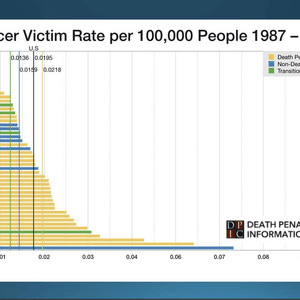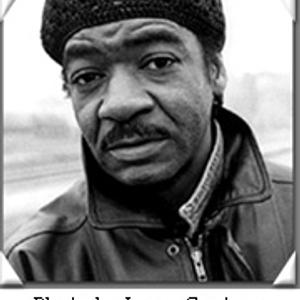
Charles Hoffman, an assistant defender in the Office of the Illinois State Appellate Defender, recently wrote an op-ed in the Chicago Sun-Times, marking a year since the death penalty was repealed in Illinois. Hoffman, who has argued more than 30 death penalty cases before the Illinois Supreme Court, says that repealing the death penalty was the right choice for the state: “The rightness of that decision is more clear than ever. Violent crime rates have not climbed. The public is no less safe. And the pursuit of justice has been served, not undermined.” He notes that, in the year since doing away with the death penalty, the murder rate in Chicago remains at a 40-year low, and millions of dollars in Illinois’ Capital Litigation Trust Fund have been designated for services to help those affected by past crimes and help prevent future crimes. Hoffman concludes, “Our system of capital punishment was abolished because it was broken beyond repair, infected with racism and inherently arbitrary and prone to mistakes. There is no doubt we’re better off without the death penalty, both morally and fiscally.” Read full op-ed below.
Abolishing death penalty was right choice for state
By Charles W. Hoffman
One year ago this Friday, Gov. Pat Quinn signed legislation abolishing the death penalty in Illinois.
The rightness of that decision is more clear than ever. Violent crime rates have not climbed. The public is no less safe. And the pursuit of justice has been served, not undermined.
Although hundreds of convicted murderers had been sent to Death Row since Illinois reinstated capital punishment in 1977, only 12 men had been executed in the 34 years the death penalty law was on the books. Yet during that same period, 20 innocent men were convicted of murder and sentenced to death, only to be exonerated after spending decades in prison facing execution for crimes they didn’t commit.
The last execution in Illinois took place in 1999, one year before former Gov. George Ryan declared a moratorium on the death penalty, as the only way to avoid what he termed “the ultimate nightmare” of the state wrongfully executing an innocent person. That moratorium remained in effect until capital punishment finally, and officially, ended last year.
Death penalty proponents had long argued that capital punishment was necessary to deter murders. But no evidence ever supported such an argument. In fact, in the year since abolition, the Chicago Police Department reports that the murder rate in the city remains at a 40-year low.
Death penalty proponents also argued that capital punishment was necessary to bring closure to the families of murder victims. Yet in practice, the death penalty process had the opposite effect, prolonging the agony those families had to suffer, as capital cases took decades to slowly wind their way through the courts. And, as many victims’ family members have painfully acknowledged, nothing can ever bring true closure when murder has violently taken a loved one.
Decades of death penalty litigation also proved to be a huge waste of scarce judicial and law enforcement resources. Capital cases cost untold millions of dollars that did nothing to make us safer. Since abolition, the millions that remained unspent in Illinois’ Capital Litigation Trust Fund have been designated for support services for families of murder victims and for training law enforcement personnel; expenditures that will actually help to heal those affected by past crimes and help to prevent future crimes.
Beyond the enormous costs of capital trials and appeals, Illinois taxpayers have also had to pay more than $64 million in damages to men wrongly convicted of murder and sentenced to death, due to the corruption or incompetence of police, prosecutors, defense lawyers and judges, who refused or failed to fairly and honestly apply the law.
Even without the death penalty, Illinois law provides severe punishment for convicted murderers. Many murders require a mandatory sentence of life without parole. And any murder committed with a firearm calls for a minimum sentence of 45 years in prison, with no credit for good behavior.
Our system of capital punishment was abolished because it was broken beyond repair, infected with racism and inherently arbitrary and prone to mistakes. There is no doubt we’re better off without the death penalty, both morally and fiscally.
The first anniversary of the abolition of that barbaric practice in Illinois is a joyous, and yet somber, occasion, which gives us all the opportunity to reflect on the profound fact that we, as a sovereign state, no longer kill people to show that killing people is wrong.
Charles W. Hoffman is an assistant defender in the Office of the Illinois State Appellate Defender. He has argued more than 30 death penalty appeals before the Illinois Supreme Court, and he is a member of the board of directors of the Illinois Coalition Against the Death Penalty.
(C. Hoffman, “Abolishing death penalty was right choice for state,” Chicago Sun-Times, March 4, 2012). Read more editorials on the death penalty.




